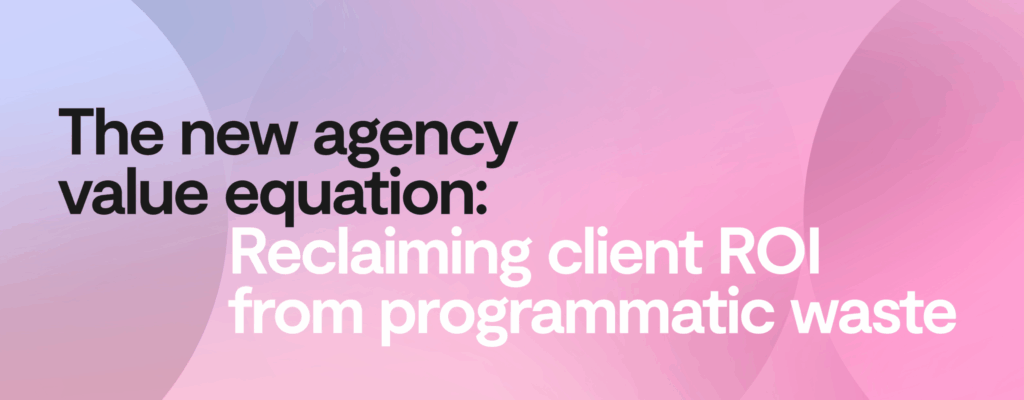- Blog
- First-party data
How publishers are tackling data deprecation: Overheard at the Beeler.Tech + Permutive roundtable
Publishers face a kaleidoscope of identity solutions as the digital advertising industry reacts to privacy and browser changes — creating confusion about what will and won’t work once third-party cookies disappear. As debates rumble on, publishers, and brands, need to start working on a plan to future-proof their businesses. But what will be a priority, what work has been done, and what’s left to do? In partnership with Beeler.Tech, we gathered publishing leaders to understand mission-critical thinking for the next six months. The session was held under Chatham House Rule to ensure attendees could speak freely. Neither the identity nor…

Publishers face a kaleidoscope of identity solutions as the digital advertising industry reacts to privacy and browser changes — creating confusion about what will and won’t work once third-party cookies disappear. As debates rumble on, publishers, and brands, need to start working on a plan to future-proof their businesses. But what will be a priority, what work has been done, and what’s left to do?
In partnership with Beeler.Tech, we gathered publishing leaders to understand mission-critical thinking for the next six months. The session was held under Chatham House Rule to ensure attendees could speak freely. Neither the identity nor the affiliation of the attendees will be shared, but here are some conversation highlights that speak to the challenges and opportunities for publishers.
How much data is enough?
The publishers present were well aware that the big tech companies will not solve their challenges and spoke about the need to take an active role in carving out their future to become a viable solution for advertisers. Attendees discussed the merits of authenticated and unauthenticated data. However, this focus on logged in users is creating a blocker for some:
“One of the biggest blockers I’ve seen is not understanding the power of the data from a first-party capacity and [saying], ‘oh, I need identity now because I don’t have any good data,’ that’s not true.”
“Identity that is verified in some format is going to be an incredibly high value, but no matter how big you are, as a publisher, that audience is going to be small. You’re not going to have the majority of your users logged in on your site, and when I say majority, even 20%, 15%, 10% or 5%. So I’m kind of curious as to what can be done today? What can you control? And what can you work on now?”
“The average person has three email addresses, and you use them for different things, so you have to be able to connect all of that.”
“You have a relationship with a consumer, but I don’t think that we should be recreating one-to-one marketing. But we have [tools that have] huge engagement rates there, which gives us enough seed data to be able to build a model, but it’s not connected to an email address.”
Has the value exchange gotten lost?
The ability to collect user data led publishers to discuss the value exchange – data for free information and content – and whether it has been communicated effectively. The ideas were wide-ranging, from paying users for data to re-explained the business model:
“I think we’ve given consumers an expectation that information is free. What do people need from us to give us their information?”
“We have done a disservice to consumers by not explaining the value proposition, and we as an industry have done a disservice by going too far. Here we are, where the consumer freaks out that we know all of these things about them. We crossed the line, and now we’re having to go back and re-explain the value proposition that has been there forever.”
“Everyone is going to be asking [consumers] for their email address; that’s what will be happening. So you almost have to take the tack of you need to pay your users for that information. But you can’t pay them directly; you have to pay them in some kind of service.”
How will measurement work?
Once publishers have their data strategy in order, sights turn to measurement. Publishers questioned how that would be possible without the use of third-party cookies, and many are looking to brands and partners to lead that conversation:
“Measurement is enormously concerning. We’ve been having very in-depth conversations with all of our measurement partners for a year and haven’t seen compelling solutions.”
“An enormous problem with attribution, and I think this will become a bigger problem, is [that] everyone always wants it to be apples to apples. They want to be able to apply the same standard to every partner on their plan. I don’t think you’re going to be able to do that. Our experience, speaking with measurement vendors, is that they’re taking an ad hoc partner-by-partner approach to figuring out the data issue. So I don’t know that there’s going to be a true apples to apples here as we enter 2022.”
“The biggest challenge is knowing what the advertiser is going to do and how they’re going to measure performance. You might have great contextual data and be able to target users, but unless the advertiser changes the way they measure things, it’s not going to matter. So the big question is, are they going to change how they measure things? And if so, what’s that going to look like?”
“Measurement is going to change, if you can control your engagement with your advertisers leading up to that, to shift their mindset on how they buy from you. So that is your control mechanism.”
“It’s about bringing that advertisers message to our sites and decreasing the number of steps that a user has to take to discover and convert.”
As publishers grapple with oncoming changes happening in the industry, the discussion at this closed event indicated a shift in mindset for many on the sell-side. Publishers understand the value of their audience and their data. They know the next few months will focus on showing that value to advertisers and working more closely with the buy-side to solve industry-wide challenges. Publishers are proactive in this data journey.
To find out more about future-proofing your data strategy, get in touch by requesting a demo.
You may be interested in
From scale to accountability: The new agency value equation
Learn MoreThe curation revolution: Rebuilding trust and transparency in programmatic
Learn MoreKeep going, there's more to uncover.
From scale to accountability: The new agency value equation
Discover how leading agencies are rebuilding efficiency and accountability in programmatic media. Learn the 3-step blueprint to reclaim ROI, reduce waste, and deliver verifiable performance through data-enriched PMPs.
The curation revolution: Rebuilding trust and transparency in programmatic
Discover how leading agencies are rebuilding efficiency and accountability in programmatic media. Learn the 3-step blueprint to reclaim ROI, reduce waste, and deliver verifiable performance through data-enriched PMPs.
The performance paradox: Why programmatic efficiency is broken
Discover how leading agencies are rebuilding efficiency and accountability in programmatic media. Learn the 3-step blueprint to reclaim ROI, reduce waste, and deliver verifiable performance through data-enriched PMPs.
The new agency value equation: Reclaiming client ROI from programmatic waste
Discover how leading agencies are rebuilding efficiency and accountability in programmatic media. Learn the 3-step blueprint to reclaim ROI, reduce waste, and deliver verifiable performance through data-enriched PMPs.
Curation as a revenue diversification strategy: Lessons from The Arena Group
The Arena Group is finding new ways to take control of its data and revenue. Discover their powerful new approach centered on curation.
How Acxiom and Fundamental Group are solving for the Outcomes Era
Acxiom’s Ruowen Liscio and Fundamental Group’s Angus Maclaine discuss solutions for the Outcomes Era in advertising. Discover how predictive targeting, curation, and AI are delivering results in a privacy-first world.





